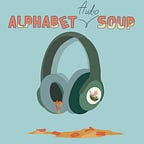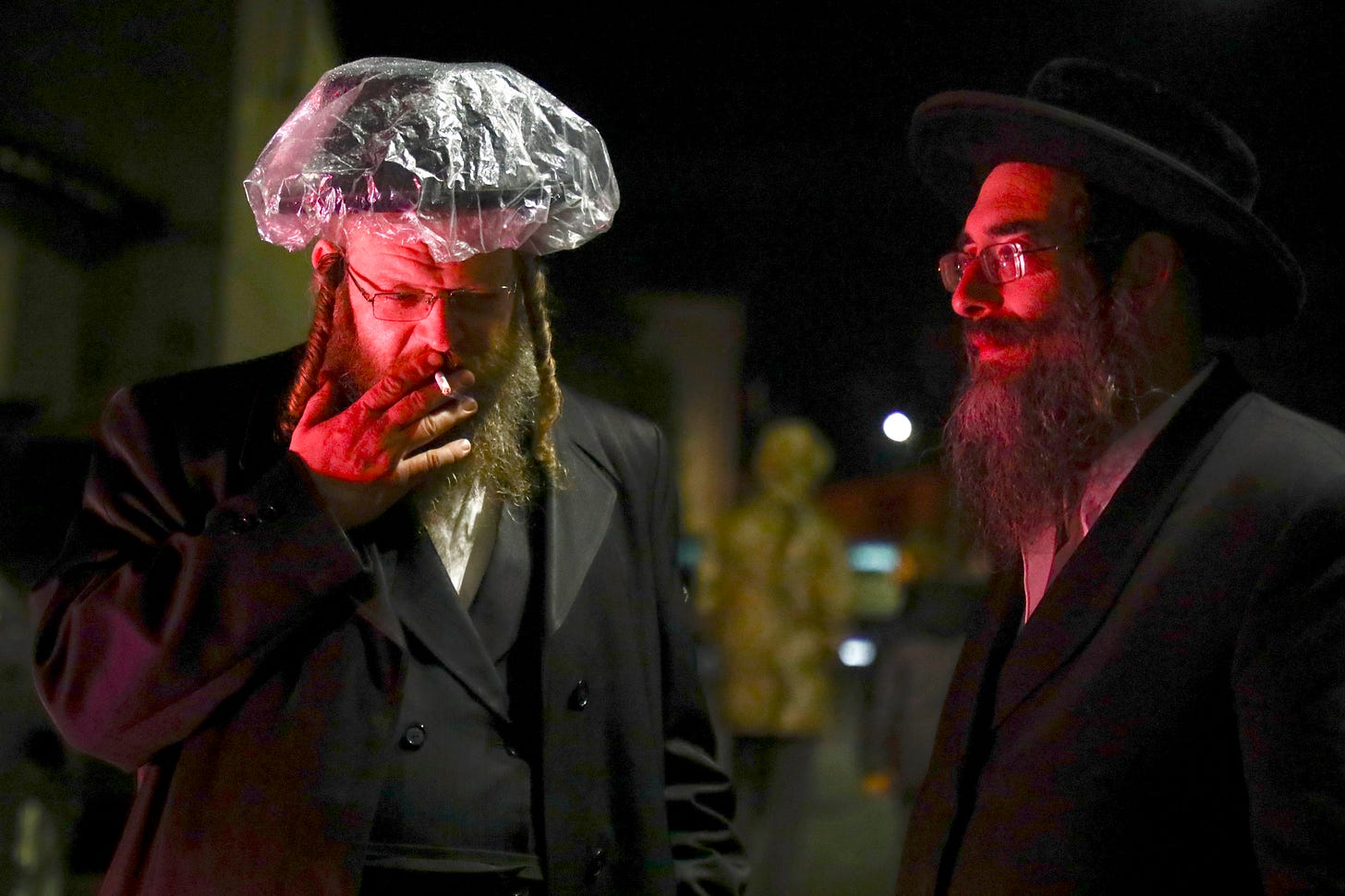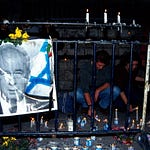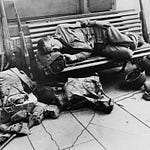I wrote this story shortly after I finished my compulsory military service. My beloved older sister had become religious and married a yeshiva student a few years earlier, and she’d just moved with her ultra-Orthodox (“Haredi”) family to Meah She’arim in Jerusalem, which is probably the strictest, most segregated Orthodox Jewish neighborhood in the world.
Most Israelis think of the Haredi population in Meah She’arim as a cross between the Amish and a street gang: completely isolated from the outside world and its technologies, hostile and suspicious of strangers. When my sister invited me to spend Shabbat with her family there, I agreed about as enthusiastically as I would if she’d invited me to get a root canal.
Long before my sister found religion, I’d visited Meah She’arim a couple of times on school trips. Both times, we were cursed at by local residents who did not like us secular infidels coming to contaminate their neighborhood. Those upsetting visits didn’t exactly leave me wanting more, but this time was different: staying at my sister’s home, I got my first inside view of the insular community. It was a fascinating and magical Shabbat, where the people I met were excited, generous, friendly, and only too happy to tell me about divine providence and the enormous gift I’d been given just by being born. I admit that I no longer remember all the details of that weekend (you can read my impressions in this article I wrote years ago), but I do remember that it was on the bus journey back to Tel Aviv that I wrote “Khobeza.”
I had a surprising encounter with this story a few weeks ago, when I was invited to see a play named “Khobeza,” based on a few of my stories. It was strange to see Ronnie Brodetzky’s intelligent adaptation of this early story of mine and to think back to a different, less polarized era, when the distance between my home in Tel Aviv and the Yiddish-speaking neighborhood in Jerusalem was shorter than it is now.
There's this place near Tel Aviv called Khobeza. I heard that people in Khobeza wear black and are always happy. “I don’t believe all that nonsense,” my best friend said, and what he really wanted to say was that he doesn’t believe there are happy people. Lots of people don’t believe that. So I got on the bus to Khobeza, and the whole way there I listened to war songs on my Walkman. People in Khobeza never die in wars. People in Khobeza don’t have to serve in the army. I got off the bus at the main town square. The people of Khobeza were very welcoming to me. From up close I could easily tell that they really were happy. They dance a lot in Khobeza, and they read thick books. I danced with them over there in Khobeza, and I also read thick books. And I wore their clothes over there in Khobeza, and I slept in their beds. And I ate their food over there in Khobeza, and I kissed their babies, on the mouth. For three whole weeks. But happiness is not contagious.












